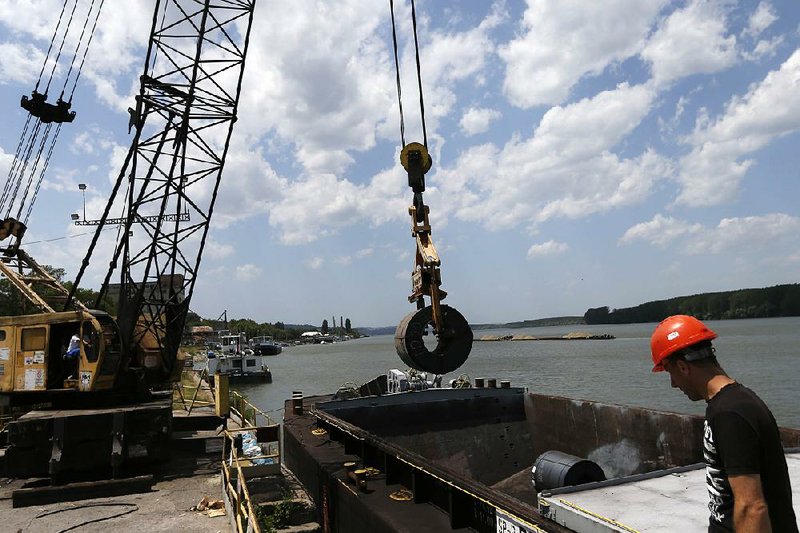SMEDEREVO, Serbia -- A giant Chinese red flag flutters on a pole where an American flag once flew at a steel mill in this dusty industrial Serbian town. The company logos of U.S. Steel are faded on the huge chimney stacks, replaced by those of a Chinese company.
When U.S. Steel sold its loss-making smelter in Serbia to the government for the symbolic sum of $1 in 2012, few here thought the ailing communist-era factory would ever be revived. Then came along a state-owned Chinese company.
Hebei Iron & Steel's $52 million purchase of the Steelworks Smederevo last year is part of China's broader effort to project influence and gain an access point to the European market as other traditional powers, particularly the U.S. under President Donald Trump, retreat from the world stage.
The dynamic was laid bare at a world summit over the weekend, where Trump showed little interest in promoting free trade and was at odds with other countries on issues such as climate change. China, meanwhile, was keen to promote itself as a champion of commerce and openness.
The Serbian plant is economically irrelevant in the short term to China, which abounds with steel production at home. But the deal saved 5,200 local jobs and gained Serbia's political favor.
"It seems to me that everything China has been doing in the past several years in the field of its investments abroad also has a political background and connotation," said Mijat Lakicevic, a Serbian political and economy analyst.
"China doesn't really need the Serbian plant that produces practically nothing compared to the steel production in China," he said. "So, I would describe this as placing a foot in the doorway in order to enter the market and the area where Russia and America are already present."
The longer-term strategy for China is to open markets for its businesses as its home economy slows. The most high-profile effort in this direction is the ambitious $900 billion Belt and Road project, often referred to as the New Silk Road -- a transport and trade corridor running from China to Germany, via Greek ports, the Balkans and Central Europe.
Annual investment by Chinese companies in Europe reached an all-time high of $18 billion in 2014, with annual inflows averaging $10 billion over the past four years, according to the Rhodium Group, a China investment monitor.
China is encouraging its industries to diversify abroad in hopes of reducing China's reliance on exports and its domestic market. That has also led to a string of acquisitions in chemicals, tourism, insurance, banking and other industries.
Steel producers have an extra incentive because China is trying to shrink its bloated state-dominated industry at home. China's production glut has led to a flood of low-priced exports, which has depressed global markets and cost jobs in the U.S. and Europe, raising political tensions. As China negotiates the issue with the U.S. and EU, its acquisition of the Serbian plant gets it some rare good headlines in which it is credited with saving, not destroying, jobs.
Chinese companies are also starting to make inroads into Eastern European construction and engineering markets, including plans to build a $2 billion high-speed rail line from the Serbian capital, Belgrade, to Budapest in neighboring Hungary.
Business on 07/11/2017
